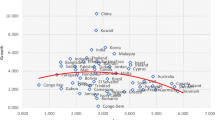Abstract
The model developed here postulates that learning through experience raises labor productivity with three major consequences. First, the steady-state growth rate of output becomes endogenous and is influenced by government policies. Second, the speed of adjustment to steady-state growth increases, and enhanced learning further reduces adjustment time. Third, both steady-state growth and the optimal net rate of return to capital are higher than the sum of the exogenous rates of technical change and population growth. Simulation results confirm the model's faster speed of adjustment, and regression analysis finds that a large part of the divergent growth patterns across countries is related to the extent of economic openness, the depth of human development, and the quality of fiscal policies.



